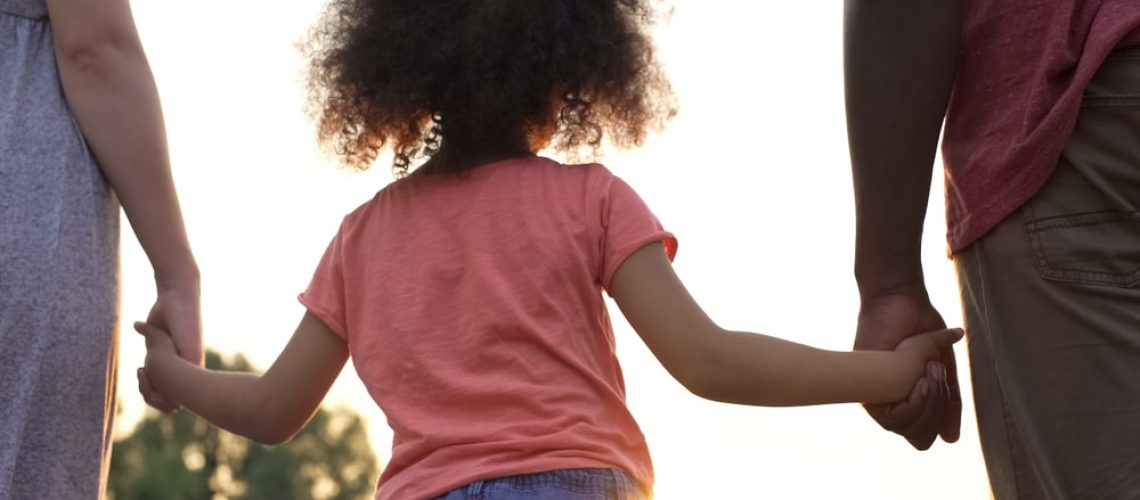The 2e profile is often misunderstood. It’s not just a matter of parents, peers, and adults not understanding, it’s when they misinterpret and make negative assumptions that 2e people learn not to trust. The process is the same whether you are a 2e kid or 2e adult, to trust you need understanding and to gain understanding, you need trust.
Parents talk about fears and frustrations. They don’t understand why their brilliant child behaves the way she does. They don’t trust their child to meet certain expectations. They become the ‘frontal lobe’ for their child and the message to their child is clear, “I don’t trust you can do this without me.” The twice exceptional child doesn’t feel seen or understood and therefore their trust is undermined.
2e adults share that they frequently feel misunderstood. They are in a constant state of masking – acting according to how they think others want them to act. 2e adults end up exercising restraint and limiting what they say or do in professional or personal situations; or, on the flip side, they force themselves to engage when they want to withdraw. Either way, the toll it takes to live out someone else’s expectations leaves the 2e adult exhausted, feeling misunderstood and out-of-step with her peers and colleagues.
Oftentimes 2e kids don’t have the life experience that 2e adults have to try and mask their true thoughts, reactions, or feelings. In their raw state, 2e kids often alienate others as they don’t understand nuance or the effect of their intensity. The sweet spot is somewhere between the masking we see in 2e adults and the unbridled, unfiltered behavior of 2e kids. It is often the reaction engendered during the 2e childhood that leads to an insecure, inauthentic 2e adult. How can we stop this pattern?
The solution lies in the deep, ego-free understanding of a 2e person’s behavior. If this can happen in a 2e child’s life, she may avoid the negative self-talk so many 2e adults experience.
First, it’s important to realize that as a parent, your experience likely mirrors your 2e child’s. As much as your child is trying to guess at and meet external expectations, so are you. If your impression is that your child is not meeting others’ expectations, you likely feel as though you are also failing to meet external expectations about your parenting. You may project disappointment in yourself onto your child’s behavior. You and your 2e child are judged all day long. It’s important for 2e parents to avoid adding judgment to their child or themselves.
Parents of 2e kids across the board report that they are lonely, feel misunderstood, are sick of trying to ‘fit in,’ and are pained watching their children try to overcome the same things. The first step is acceptance. Judge your child according to who she is. Understand her strengths and struggles and from that lens, appreciate the efforts she makes all day in everything she does. Likely she is expending more effort than her peers all day every day. We know that behavior is communication, so rise above your child’s behavior. Gain perspective, give the benefit of the doubt, and do not allow yourself to judge your child based on what she does. Instead focus on why. What is the trigger? What part of her genuine self was unbearably challenged? This is the most important step in the process of understanding.
Imagine yourself as making or taking space. For your child to gain trust, she must have space. If you fill the space with judgment, assumptions, consequences, and reactions, she does not have the room to consider the causes of her behavior. But, if you allow your child to approach you and you can respond with validation and acceptance, you open space so she can trust you and herself and gain calm sooner.
The same is true for the 2e adult. Recognize your trigger, give yourself the benefit of the doubt and recognize and address your needs in that moment, rather than ignoring them. Acceptance and trust of yourself leads to a healthier response. Repeatedly pushing through uncomfortable situations leads to burnout.
The irony is that when a 2e adult succumbs to external expectations, she requires external validation to feel successful. Seeking this validation is difficult for the 2e adult. In effect this process puts the 2e adult in a perpetually uncomfortable situation. When a 2e adult allows herself to understand her own needs, she gains trust in herself and feels successful because of – not despite – who she is.
Similarly, the goal for 2e parents is to create agency for their children. We want 2e kids to recognize when they feel out of sync and to find the strength to rely on themselves to work through their uncomfortable feelings. We want them to feel as though their authentic selves are worthy so they can accept who they are and appropriately address their needs. It’s so often that a 2e person does not feel accepted. They often feel burdened and burdensome as though they are just too much for others. This perception leads to shame and withdrawal. Feelings of shame and withdrawal undermine the ability to trust. Oftentimes reactions to behavior are steeped in assumptions. Because the 2e profile is always complex, assumptions are typically based on misunderstanding. When parents base their reactions on misunderstanding, the 2e child either internalizes their failure at meeting expectations or struggles to express what the adult is misunderstanding. Either way, that 2e child grows up with a learned experience of mistrust for herself and/or others around her.
Trust and understanding of one’s 2e self or 2e child is imperative for the 2e person to thrive and find ongoing joy in life.

Author: Julie F. Skolnick M.A., J.D.
Julie Skolnick, M.A., J.D., is the Founder of With Understanding Comes Calm, LLC, through which she passionately guides parents of gifted and distractible children, mentors 2e adults, and collaborates with and advises educators and professionals on bringing out the best and raising self-confidence in their students and clients.


2 Responses
Thank you so much for this for this! It really helped to understand how much energy my son is expending all day to just get by socially. No wonder he is exhausted. I will work with him using your ideas.
Barbara, I’m so glad this blog resonated with you! Just some understanding and reframe can help move the ball forward as our 2e kids feel seen.